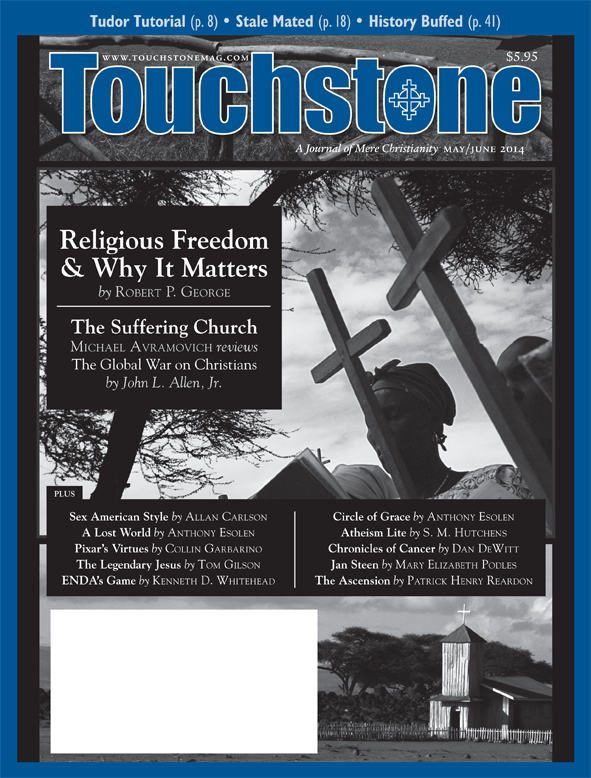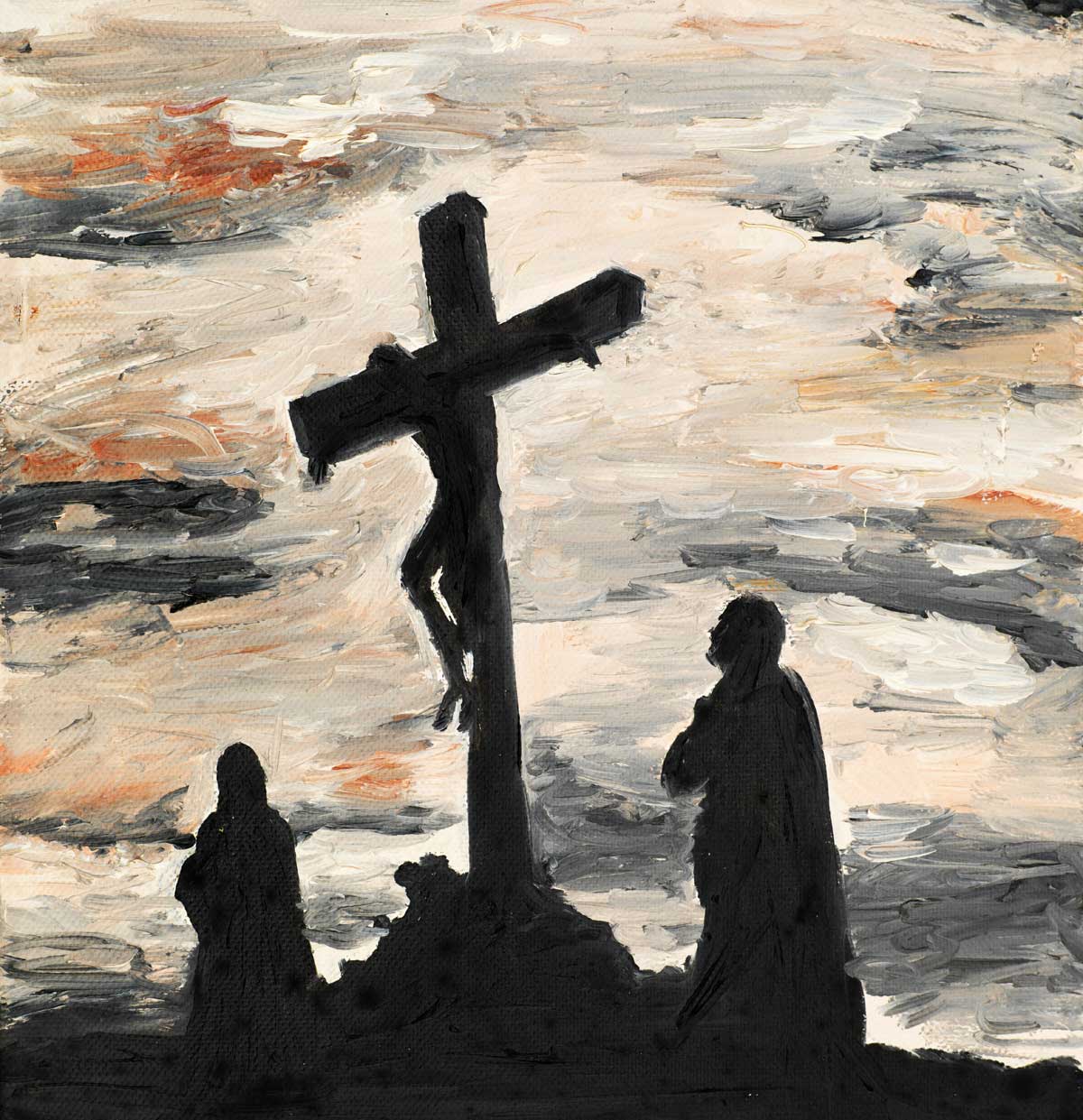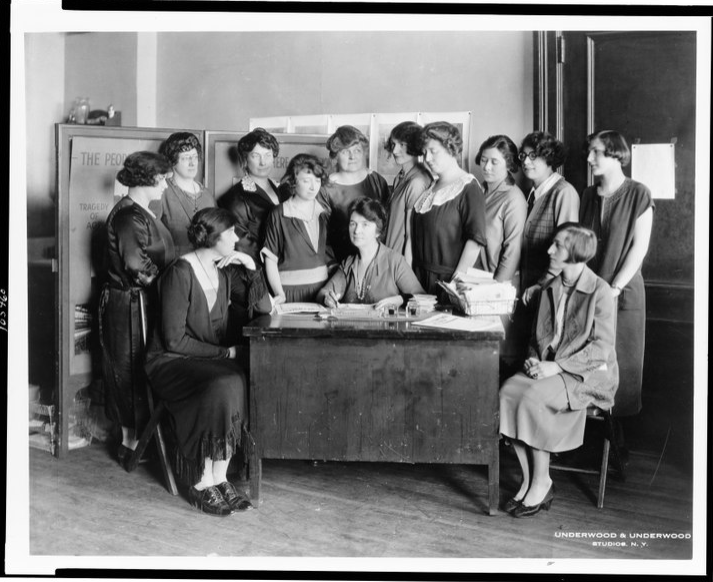Book Review
More Sheep for Slaughter
The Global War on Christians: Dispatches from the Front Lines of Anti-Christian Persecution
by John L. Allen, Jr.
Image, 2013
(320 pages, $25.00, hardcover)
reviewed by Michael Avramovich
The Global War on Christians is a difficult book to read. Not because it isn't well-written; it is. It's hard to read because it brings home the sheer magnitude of the horrors facing so many Christians in our world today. John Allen, senior correspondent for the National Catholic Reporter and the senior Vatican analyst for CNN, tells the manifold stories of those being persecuted and martyred for their Christian faith all around the world. He informs us that several hundred million Christians are suffering, and many dying, for their faith in our day. (Estimates are that approximately eleven Christians are martyred each hour.) The list of afflictions and cruelties endured by these Christians is unimaginable, and often indescribable: amputation, bombing, crucifixion, displacement, flogging, kidnapping, murder, imprisonment, rape, slavery, and torture.
As the Church grows throughout the world, Allen asks whether the peacefulness of Christians, and the fact that Christianity explicitly rejects violence committed in the name of our faith, invites persecution because perpetrators do not have to worry about retribution.

Worldwide Persecution
The book is divided into three parts. In the first, which is organized by continent, Allen describes the afflictions and case histories of persecuted Christians in different countries around the world. He cites reliable studies which estimate that more than 45 million Christians have been martyred in the twentieth century and the beginning of the twenty-first, most of them falling victim either to Communism or Fascism. He also cites human-rights experts who estimate that 80 percent of all acts of religious discrimination in the world today are directed against Christians. He suggests that one reason for the huge and growing number of persecuted Christians may be the fact that Christianity is the largest religious body on earth, with more than 2.2 billion adherents.
Using data from Open Doors' World Watch List, Allen delineates the countries where Christian believers suffer most for their faith. While Muslim-majority nations are prominent among them, many other nations persecute as well, particularly in Asia and Eastern Europe and among countries belonging to the former Soviet Union. But whether in Africa, Asia, Latin America, the Middle East, or Eastern Europe, many Christians are living through a time of great tribulation.
In the second part of the book, Allen describes many of the fallacies and myths about Christian persecution that people erroneously subscribe to. Media attention leads many to conclude that most Christian persecution arises from Islam, but Allen says it is a mistake to conclude that Islam is the lone force in the global war on Christians. To be sure, Christians in the Middle East and the Islamic parts of Africa are treated as second-class citizens in their societies, and many suffer much brutality. But in certain Asian countries such as Sri Lanka and Vietnam, radical Buddhism regards Christianity as an unwelcome "foreign" influence; and in India, tens of millions of Christians carry the stigma of multiple forms of discrimination because of the influence of radical Hinduism, with its caste system. Christian Dalits, who are born into the lowest caste, typically perform menial jobs, and have been bypassed while other segments of society enjoy a rapid rise in wealth. Through examples like these, Allen shows that there are often multiple forces at work against Christians in different parts of the world.
In part three, Allen discusses some of the social and political fallout from the high level of Christian persecution, particularly regarding efforts to foster religious freedom and democracy in the developing world. He expects that emerging leaders in developing countries, many of whom have witnessed persecution firsthand, will continue to sow the seeds of evangelism and church growth. And he anticipates that in many parts of the world, Christians will be forceful proponents of democracy, human rights, peacemaking, and justice. In this section, Allen also offers a number of helpful and constructive ways in which we can aid our persecuted brothers and sisters, including prayer, education, institutional humanitarian relief, political advocacy, and micro-charity.
An Important Contribution
The book has some weaknesses. Although mentioned in passing throughout, the specific brutality of Christian suffering in North Korea is given but one page of detailed attention. And while Allen encourages Christians to pray for their persecuted brethren, he fails to mention the six-week period culminating in the International Day of Prayer for the Persecuted Church in mid-November. This annual event involves more than 100,000 churches in more than 115 countries, whose congregations gather to learn about and pray for persecuted Christians around the world.
Furthermore, although the author encourages political activism and advocacy on behalf of persecuted Christians, he might have emphasized the importance of writing to government officials, both in the U.S. and abroad, and of asking political candidates who visit one's church or community to specify their position on providing foreign and military aid to countries that persecute Christians.
Overall, I commend this book for making an important contribution to our understanding of the modern world and the dangers that Christians increasingly face in it. Bible study groups interested in this crucial topic would find the book useful, and I think that mature teens in particular would benefit greatly from deepening their understanding of the costs of Christian discipleship today.
Allen has presented Christians with a powerful tool with which to inform themselves and others about the suffering of their brothers and sisters in Christ. As we read these powerful stories of faith and courage, we should be encouraged to stand together with those who suffer in the name of the Lord Jesus, as we are instructed to do in Hebrews 13:3. •
Michael Avramovich is a lawyer in private practice, and is Adjunct Professor of International Business and Trade Law at The John Marshall Law School in Chicago. He also serves as a volunteer speaker on behalf of The Voice of the Martyrs, and is a regular contributor to the Touchstone blog, Mere Comments.
subscription options
Order
Print/Online Subscription

Get six issues (one year) of Touchstone PLUS full online access including pdf downloads for only $39.95. That's only $3.34 per month!
Order
Online Only
Subscription

Get a one-year full-access subscription to the Touchstone online archives for only $19.95. That's only $1.66 per month!
bulk subscriptions
Order Touchstone subscriptions in bulk and save $10 per sub! Each subscription includes 6 issues of Touchstone plus full online access to touchstonemag.com—including archives, videos, and pdf downloads of recent issues for only $29.95 each! Great for churches or study groups.
Transactions will be processed on a secure server.
more on christianity from the online archives
more from the online archives
calling all readers
Please Donate
"There are magazines worth reading but few worth saving . . . Touchstone is just such a magazine."
—Alice von Hildebrand
"Here we do not concede one square millimeter of territory to falsehood, folly, contemporary sentimentality, or fashion. We speak the truth, and let God be our judge. . . . Touchstone is the one committedly Christian conservative journal."
—Anthony Esolen, Touchstone senior editor












